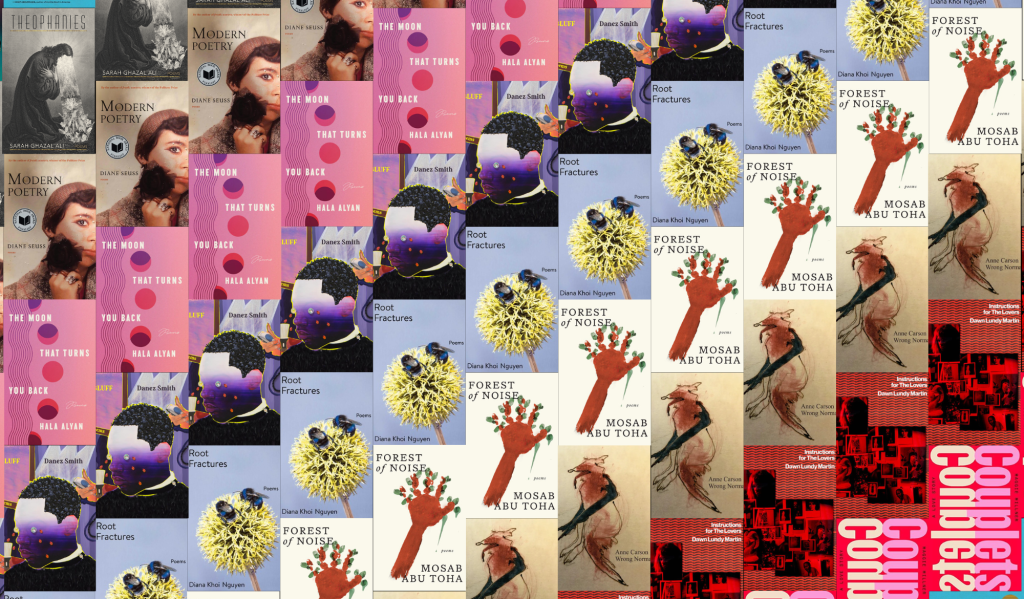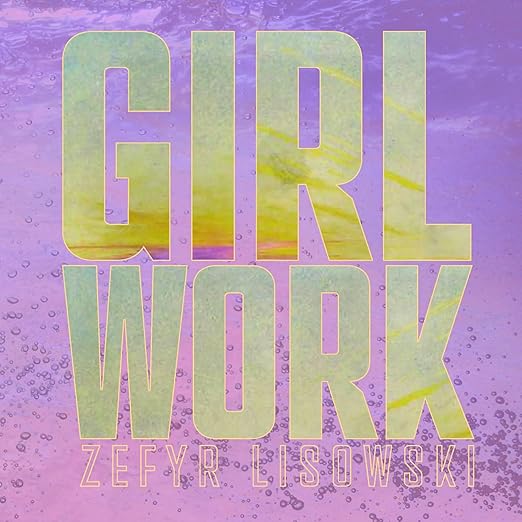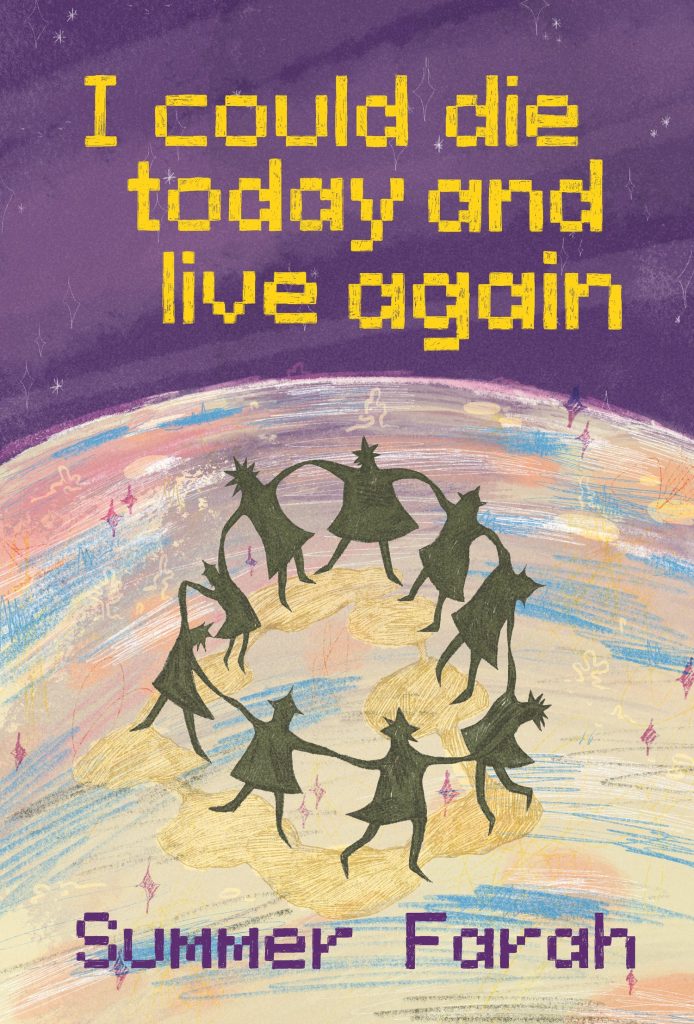Electric Literature Urgently Needs Your Help
For the 15,000 people who visit our site every day, reading Electric Literature costs nothing. And yet Electric Lit is not free. We need to raise $25,000 by December 31, 2024 to keep Electric Literature going into next year. If the continued existence of Electric Literature means something to you, please make a contribution today.

2024 has not just been an excellent year for poetry, it’s also been a tremendously important one. As governments, AI, and social media algorithms seek to suppress our voices, we need poets now more than ever—whether they’re writing rallying cries that empower us to resist or quietly reminding us of our shared humanity. This year, Palestinian and Palestinian diaspora writers have been at the forefront of this effort, publishing essential work in the midst of an ongoing genocide and reminding us of the power that poetry can wield in the face of oppression. We cannot afford to take their immensely important work for granted. The poets on this list have given us a gift, something deeply human and connective in an increasingly automated and separated world. We are infinitely lucky to have them writing in the world today.
Here are Electric Lit’s Top 5 poetry collections of 2024, followed by additional favorites below.
The Top 5 Poetry Collections of the Year:
Bluff by Danez Smith
Danez Smith’s galvanizing new collection reckons with police brutality, racism, and Covid-19 in a divided country. A series of anti poetica and ars america poems reveal Smith’s disillusionment with the neoliberal literary scene and its acceptance of apolitical stasis. Their urgent, fierce voice cements Danez Smith as a poet of vital importance for the present moment.
Wrong Norma by Anne Carson
Carson characterizes her latest volume of poetry as “wrong” because the pieces are unlinked. Ranging in subjects from Roget’s Thesaurus to meditations on a woman swimming in a lake, these twenty-five prose poems feel as though they intentionally capture the way the human mind moves from thought to thought, skipping from one to another with little connective tissue at times. Featured alongside the poems are drawings by Carson herself. The effect is a collection fully immersed in the lyric tradition, earning it a place on the the National Book Award shortlist.
Root Fractures by Diana Khoi Nguyen
Root Fractures, Diana Khoi Nguyen’s much anticipated sophomore collection, examines how families respond to tragedy. How they pick up the fractured pieces, if you will. Khoi Nguyen turns a loving, yet critical eye toward her mother’s life in the aftermath of the Fall of Saigon, her father’s experiences as an immigrant in America, and the aftermath of her brother’s suicide. These poems examine how trauma takes root over generations, providing a fresh perspective on diaspora, identity, and loss.
Forest of Noise by Mosab Abu Toha
This harrowing collection highlights the importance of bearing poetic witness in times of violence and oppression. In fall 2023, Mosab Abu Toha was living in Gaza with his family, constructing Palestine’s first English-language library, when the current iteration of the Israeli occupation began, destroying his library and putting their lives in danger. In the aftermath, amid detention by Israeli forces and evacuation to refugee camps, Toha scribbled poems wherever he could, the poems that would eventually make up Forest of Noise. He uses stark diction, a compassionate tone, and an unshrinking documentary eye to construct this haunting book.
The Moon That Turns You Back: Poems by Hala Alyan
Hala Alyan’s fifth collection of poetry is a blistering, prescient, and formally innovative ode to the landscapes she has loved, from Palestine to Lebanon to the United States. Her stunning “interactive fiction” poems each offer three parallel narratives ballooning from a single beginning and ending line, inviting the reader to generatively reconstruct the poem alongside the writer. Thus, Alyan foregrounds collaboration, recreation, and survival even in the face of unspeakable violence. Her poems are at once technically precise and politically resonant, bringing to mind the unbreaking strength of Palestinian resistance.
Electric Lit’s Additional Favorite Poetry Collections
After by Geoffrey Brock
In his third poetry collection, Geoffrey Brock posits a unique take on the “after” poem, those lyrics written in response to works by other poets and artists. Some of those poems are after poems in the traditional sense, while others are written in the aftermath of the death of his father, the poet Van K. Brock. As a result, the collection ponders what one writer, whether they be actual father-and-son or more of a poetic mentor, inherits from another.
Bad Mexican, Bad American by Jose Hernandez Diaz
This unassuming little book hides poems of deep imagination and off-kilter innovation. Hernandez constructs surrealist prose poems in the vein of authors like Baudelaire and Simic, yet makes them his own with a whimsical flair. He flexes his literary muscles in confessional linear verse, too, particularly in the standout narrative poem addressed to his father. The collection shows off the wide variety of modes in which this talented, imaginative, and wholly unique poet can sing.
Consider the Rooster by Oliver Baez Bendorf
Oliver Baez Bendorf troubles the boundaries: of countries, of genders, of time periods. His poems contemplate both the threat of ecological collapse and the often-erotic beauty of nature. Often, gender concerns interrupt and interact with environmentalist commentary as Bendorf positions his transgender identity as “a way of arranging the / world through change.” Even the shape of the physical book—landscape orientation with wide margins—acts both to safeguard the formal integrity of Bendorf’s poems and to emphasize the importance of Earth’s landscapes. The wide range of forms in this collection, including prose poems, sestinas, and speculative ekphrasis, cement Bendorf’s status as one of the most interesting poets working today.
Girl Work by Zefyr Lisowski
Winner of the Noemi Press 2022 Book Award in Poetry, Girl Work dissects the demands of capitalism, the fallibility of memory, and the “hunger of being a dead girl in a sea of / dead girls.” Zefyr Lisowski draws on myriad life experiences—a brief stint in sex work, childhood as a queer person in the South, the death of her father, her love of horror movies—to create a deeply confessional meditation on beauty and labor. The specter of past sexual violence haunts every page, especially the visual poems, wherein overlapping prose blocks depict a mind crowded by intrusive memories. Lisowski achieves feats of form, prosody, and hybridity in this ambitious, tightly constructed collection.
I could die today and live again by Summer Farah
Summer Farah’s debut is a pleasant surprise, a veritable Russian nesting doll of a collection. Though set in the video-game realm of Hyrule from The Legend of Zelda, the book contains a second setting: Palestine, haunted by the Israeli occupation. Her dense blocks of prose portal and warp, drifting musically between Farah’s preoccupations. Cycles of life and death, like a video game character regenerating, guide the book along its breakneck pace.
Instructions for The Lovers by Dawn Lundy Martin
This Lambda Literary Award-winning poet returns audaciously with a collection that tests the limits of meter, line, and language itself. Slipping in and out of lovers’ beds and mothers’ homes, Dawn Lundy Martin reclaims her body and her selfhood from a society always poised to strip her of power. The perfectly wrought micro-poems, careful prosody, and resolute diction of this collection cement Martin’s reputation as a poet with a remarkable eye and ear.
Interrogation Records by Jeddie Sophronius
Winner of the 2023 Gaudy Boy Poetry Book Prize, Interrogation Records turns an docupoetic eye to the Indonesian mass killings of 1965. Jeddie Sophronius takes an archivist’s posture as they sift through historical documents, many of which are collaged and interpolated in their poems. At the same time, Sophronius’s Chinese-Indonesian heritage—similar to many of the 1965 victims’ backgrounds—gives the poems an extra layer of empathy. Their unflinching, immediate poetic voice offers an alternative to the silence that has previously clouded this tragic event. Now more than ever, voices like Sophronius’s are vital tools against censorship and persecution.
The Invention of the Darling by Li-Young Lee
Li-Young Lee’s fifth poetry collection, and the first published in more than a decade, oscillates between the divine and the mundane. The collection has similar themes — family, exile the immigrant experience — to Lee’s other books, but the imagery is fresh and poignant. These poems are an act of love, written by someone enchanted by the world.
Modern Poetry by Diane Seuss
In the follow-up to her Pulitzer prize winning frank: sonnets, Diane Seuss takes on the subject of poetry itself. Namely, her journey from erstwhile student to virtuoustic poet, capable of jumping from ballad to fugue to other more archaic forms. Her characteristic, at times self-deprecating, humor breathes life into a collection that tries to tackle the question of what poetry means — not only to Seuss, but to society as a whole — today. It’s no wonder the book made the shortlist for the National Book Award in poetry.
Song of My Softening by Omotara James
In Song of My Softening Omotara James spotlights bodies other writers shy away from — those that are fat, female, Black, and queer. The collection is split into two sections “The Sacrifice,” and “The Feast,” but each one contains a kind of celebration of the self and all its forms. She instructs readers to love their bodies, while also acknowledging the limits others may put on us as a result of our physical appearance.
Soon and Wholly by Idra Novey
Idra Novey’s Soon and Wholly juxtaposes two Americas: the rural world of Novey’s Appalachian childhood and the city streets where she’s raising her own family. In doing so, she weaves together the shared concerns of rural and urban Americans, two groups often cast in opposition to one another. Novey’s gaze isn’t limited to the mountains, plains, and coast of America, however. They traverse continents, dipping into both the wilderness of her own childhood and lingering on a woman housesitting in central Chile during wildfire season. These poems grasp the urgency and complexity of our time.
Theophanies by Sarah Ghazal Ali
In this striking debut, Sarah Ghazal Ali uses the Qur’an and the Bible to explore the intersections of faith, family and womanhood. One central question of the collection is naming. Ghazal Ali writes on the origins of her name in one sequence and draws on the Ghazal, a poetic form with which she shares a name. The result is a collection deeply concerned with faith, identity, matrilineage, and how one identity can cause friction with or even splinter another.
Ward Toward by Cindy Juyoung Ok
Winner of the Yale Younger Poet Series, Cindy Juyoung Ok considers how the language of institutions — prisons, psychiatric hospitals, hospice wards — constrains the identities of those inside. Her poems bring to the fore narratives of mental illness, abuse, and death with an arid kind of humor, inviting readers to consider how the absurdity of our present moment manifests in everything from the climate crisis to the institutionalization of teenagers. These poems demand tenderness in troubling times.
With My Back to the World by Victoria Chang
This ekphrastic collection turns its eye toward the works and writings of painter Agnes Martin. In her research-laden poems, Victoria Chang considers Martin’s abstractions alongside topics like feminism, depression, spectacle and grief. The poems appear alongside collages of images and early drafts, giving the book a palimpsest quality and offering insight into the poet and painter’s process.
[…]: Poems by Fady Joudah
This unforgettable collection provokes from its very title: the ellipsis represents an unfinished thought, a loss for words, a life extinguished, erased. Joudah sustains the tension of the collection by reminding us always of the impossibly high stakes, the lives lost every day in his native Palestine. He employs a measured tone and lyric precision that cut to the heart of the tragedy, allowing the poems to speak on both the personal and the academic level. The collection leaves the reader with re-fortified belief in the cause of Palestinian resistance and with gratitude to be living at the same time as such a monumental talent.
Take a break from the news
We publish your favorite authors—even the ones you haven’t read yet. Get new fiction, essays, and poetry delivered to your inbox.
YOUR INBOX IS LIT
Enjoy strange, diverting work from The Commuter on Mondays, absorbing fiction from Recommended Reading on Wednesdays, and a roundup of our best work of the week on Fridays. Personalize your subscription preferences here.



